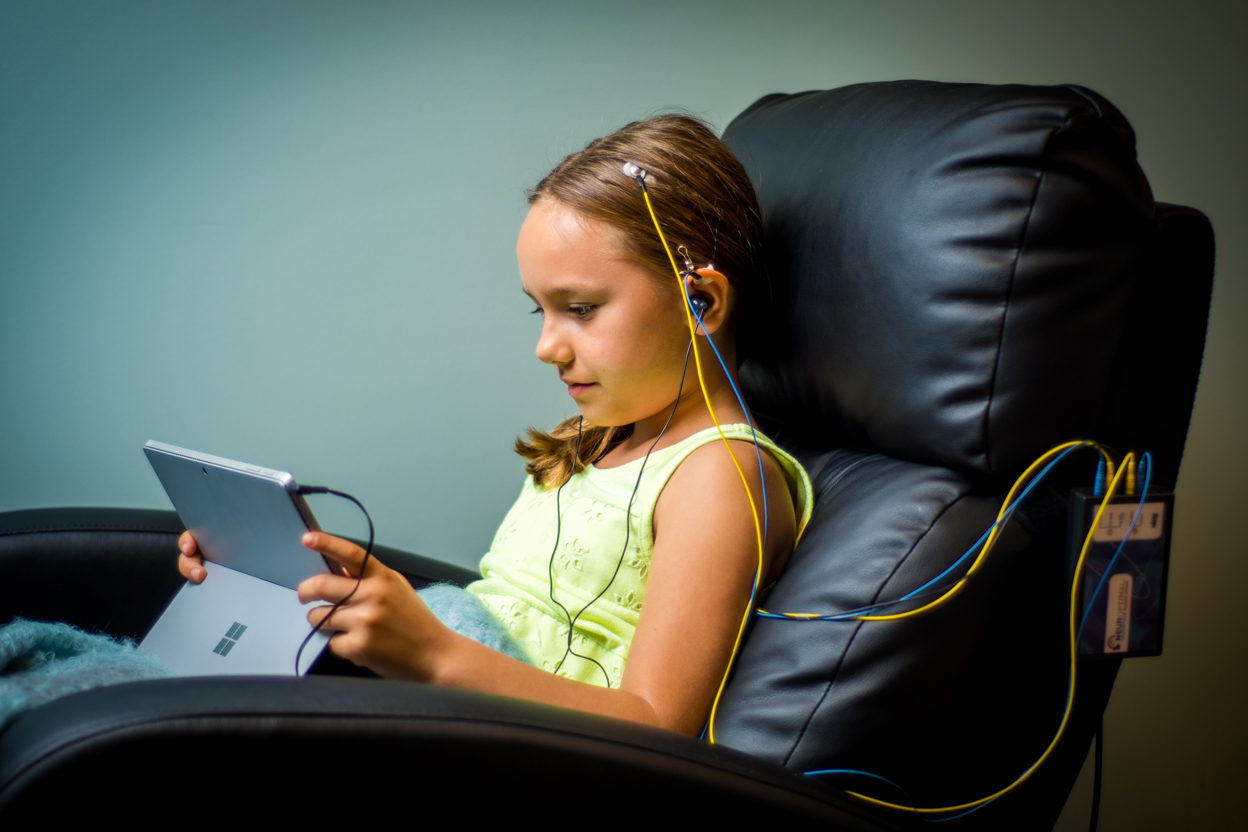The Cure for Insomnia: Combining CBT-I, Brainwave Biofeedback for Powerful Results
Introduction:
Living with chronic insomnia is an incredibly difficult experience, affecting every facet of one’s life. Those who struggle with this condition often face night after night of repeated wake ups, racing thoughts and dreading the day ahead. The impact of such prolonged sleep deprivation extends into undermining one’s energy, mood, cognitive functions, and overall health. Chronic insomnia not only exhausts the body but also strains relationships, reduces work productivity, and diminishes quality of life. While Cognitive Behavioral Therapy for Insomnia (CBT-I) and advanced brainwave biofeedback are a powerful combination, the addition of a highly experienced sleep coach can greatly enhance this treatment’s effectiveness. This article explores how this comprehensive approach can significantly improve sleep quality and quantity, and restore well-being.
Understanding Chronic Insomnia
Chronic insomnia goes beyond the occasional difficulty of just a few bad nights. It is a persistent cycle of inadequate rest that can be triggered by a myriad of factors including ongoing stress and anxiety, genetic core-dispositions, or a loss in sleep confidence. For those affected, the bedroom can become a battleground rather than a place of rest, with each night offering a reminder of the struggle for sleep. Addressing chronic insomnia is essential, as leaving it untreated can lead to serious long-term health issues such as heart disease, dementia, and depression.
Cognitive Behavioral Therapy for Insomnia (CBT-I)
CBT-I is the psychological treatment of choice for insomnia, designed to change sleep habits and schedules systematically, and to modify the thought patterns that contribute to the cycle of insomnia. While considered effective, CBT-I has its limitations. Original studies on CBT-I showed that only 17% of participants achieved a 30-minute increase in TST by the end of acute treatment. While this can be significant in mild to moderate insomnia, it highlights the need for additional strategies to address more severe cases.
Key Components of CBT-I
- Stimulus Control Therapy: This helps to break the association of the bed with wakefulness and stress, reestablishing the bed as a cue for sleep.
- Sleep Restriction: Tailored to reduce time in bed not sleeping, thereby intensifying sleep drive.
- Sleep Hygiene Education: Educates on habits that enhance sleep, providing practical tools for individuals to adapt their lifestyle in favor of better sleep patterns.
- Relaxation Techniques: Essential for easing the mind and body, especially for those whose insomnia is compounded by anxiety or stress.
Advanced Treatment for Insomnia
Brainwave biofeedback, is a side-effect free, FDA cleared approach that focuses on the bio-electrical, or EEG aspects of insomnia. The human brain has a symphony of electrical activity coursing through it all day, every day. And form factors like heredity, unresolved trauma or prolonged anxiety and stress, these signal can become unstable. The brain is a self-intelligent organ, it actually knows about these instabilities, but it doesn’t have the ability to self-correct on it’s own.
How Brainwave Biofeedback Works
Monitoring: Using sensors to detect brain activity, specialized software can detect, and teach he brain to correct brainwave anomalies.
Feedback: Through signals or sounds, the individual’s brain is guided toward a non-invasive re-training of the brain globally.
Training: Gradual mastery over correcting patterns can deeply influence sleep quality and duration for the long-term.
Choosing the Right Biofeedback Provider
When searching for a practice that specializes in combining brainwave biofeedback with personal sleep coaching, it’s crucial to seek out verified reviews that showcase real results from real people. This can provide insight into the effectiveness of the practice and help gauge whether their approach is likely to be successful for your specific situation.
The Role of a Personal Sleep Coach
Personal sleep coaches are vital to help guide an insomnia client through each step of their treatment. This coach provides tailored advice, continuous support, and motivation to help implement the strategies effectively. The addition of personal coaching ensures that the treatment is adjusted based on individual progress and specific needs, thereby enhancing the overall effectiveness of the therapy.
Personalized sleep coaches differ from CBTi in that there’s an empathetic connection and consistent dialog between client and coach, as opposed to only communication during the CBTi session.
Conclusion
The journey through chronic insomnia is fraught with challenges, making daily life an uphill battle. However, the combination of cognitive behavioral therapy for insomnia, advanced brainwave biofeedback, and personalized sleep coaching offers a powerful and effective treatment plan. This approach not only promises a return to normal sleep patterns but also a restoration of life’s vibrancy and potential. For those enduring the nightly struggle of insomnia, especially in chronic cases, this combined therapy could indeed be the turning point, leading from restless nights to mornings of renewal and energy.

